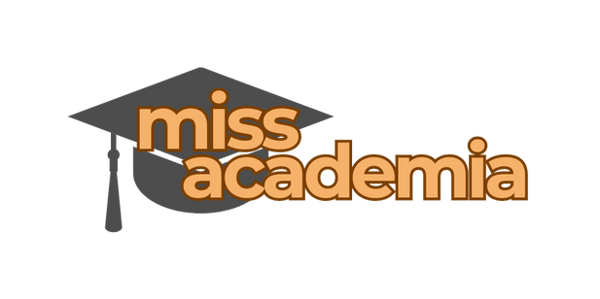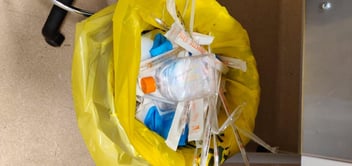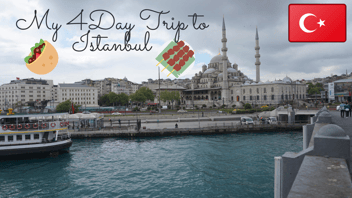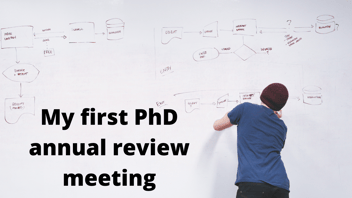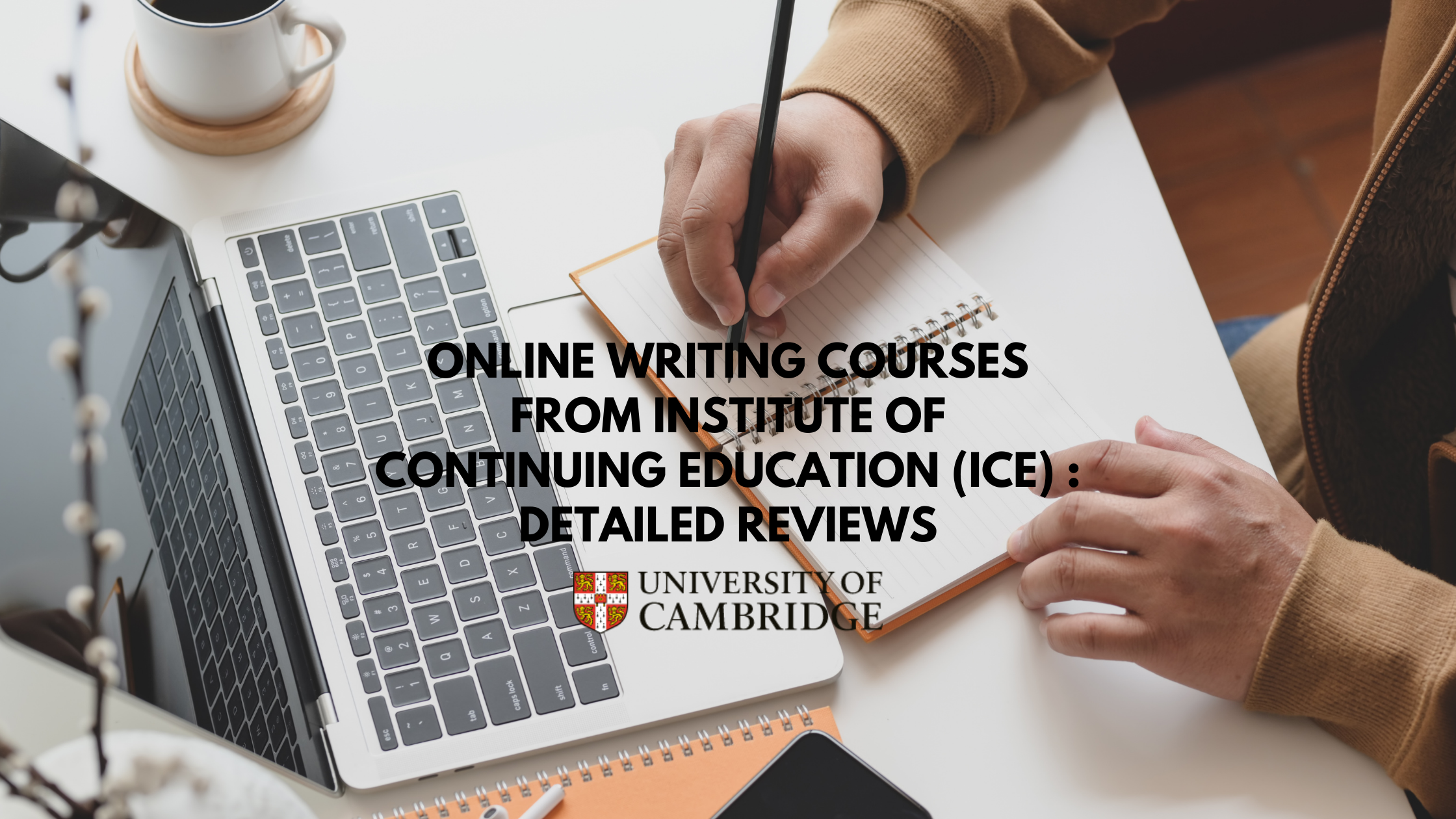
Writing, writing, writing. Writing papers, writing thesis, writing grants, writing scholarship application; who knew that being a scientist would also make you a writer by opportunity?
Writing is a big deal in research because it is a way of communicating our work to the world. It is also a key task in the good practice of science where we need document every detail of experiments, procedures and findings, to ensure the integrity of the work. I also learn that progressing through the stages of a research career means that we will be exposed to different kinds of writing. As a PhD student, I am dealing with a range of writing tasks including reports, manuscript for publications and of course, the final document that will get me my doctorate degree, the PhD thesis.
I came to love writing when I started working on my literature review during my first year, but that does not mean I am good at it. Somedays I could jot down thousands of words that read beautifully, other days I could spend hours just fixing a sentence. Just like any other skills, we all can get better at writing by practicing. This means putting the consistent hours into the task, reading and reviewing other people's writing, while also receiving feedback and critics on our own writing. The challenges in writing has always been around our habit and discipline.
So, I was determined to expose myself to a variety of writing tasks with the goal to walk away with a piece of writing or to just get some writing done. I had the opportunity to enroll in four different online writing courses from The Institute of Continuing Education (ICE), University of Cambridge. Each course takes 6 weeks to complete where each week requires few hours of reading, discussing with fellow students, and writing the assignment. Here are some details about these courses:
1. Popular Science Writing
If you have come across stories like how Alexander von Humboldt was one of the firsts to bring evidence of climate change from his adventure in South America; or how the cancer cells of Henrietta Lacks that were isolated in the 60s have brought many advances in medicine; or the journey of Doudna and Charpentier in discovering CRISPR as gene editing tool that led them to win the Noble prize in 2020 - then you have exposed yourself to popular science writing.
Popular science stories are non-fiction, that explain about science but jargon-less, and also without data or exhaustive references. Unlike academic writing that aims to communicate scientific findings to very targeted audience, popular science writing aims to share scientific knowledge and make it more accessible to public. The idea of having more people doing and understanding science is always good, so that's what popular science writing aim through engaging and entertaining piece of writing.
The Popular science writing course aims to familiarize the participants with different styles and forms of popular science writings. Throughout the course, we would dissect stories, distinguish features that separate popular science from academic writings, learn about structures, shape stories, and work out timelines. We would identify cluttered words and edit a piece so it communicates more efficiently. We would replace jargon with simple sentences to connect better with the readers. We would think mostly about the readers and ways to make them feel safe and not lost while reading our piece. The key is to never highlight the knowledge gap between the author and the readers otherwise the readers would feel patronized and lose trust, regardless how much of an expert the author is.
Dr. Helen Scales is the mentor for this course. She inspires participants in writing their own story, where to start, from book proposal to publishing. Having completed her PhD in Marine Biology, Dr. Scales started writing her book as she realized how much she loved writing her thesis. She has published many books about life in the ocean, telling stories from the eyes of sea creatures and how they go through climate change pollution. Though, it doesn't matter if you have no science background, this course is for everyone; if you are fascinated by science and you are itching to tell your story to the world, then you too can write popular science! Reading more popular science books is always good to keep fueling your writing. My Top 3 Favorite Popular Science Books here and my love for science are the reason why I write.
Figuring out the time and place where you write best is a great first step.
2. Creative Writing: An Introduction to Life Writing
Life writing is all about telling a story of one's life. Be it writing a biography, a memoir, an obituary, life writing focuses on someone's life event, what they did and what makes them THEM. This course provides the essence for making your writing come to life. Just like any non-fiction writing, life writing carries facts about someone's life but the interesting part is how we can weave in those facts into an entertaining story. Famous diary written by Anne Frank, Long Walk to Freedom by Nelson Mandela, and I Know Why the Caged Birds Sing by Maya Angelou, are popular examples of life writing.
The course started with a reflective activity on what it means to be a life writer through discussion about some philosophical points. In the essay entitled "The Critic as Artist", Oscar Wilde describes biographers as "the body-snatchers of literature" - a wonderful revelation I had from the discussion with my fellow students was to think of life writers who literally steal one's life and use it as their literary creation. Relevantly, how Desmond MacCarthy describes an ideal biographer as "An artist upon oath" could guide writers to reflect on how much of an artist they are, how much creativity they put into the writing while being bound by the "oath" to tell only the truth about one's life.
The exercises throughout the course really encouraged the participants to focus and give a life story to a "name", an everyday object, a sense of place, and a momentous journey. We would discuss various elements in our writing such as structure, timelines and pace, identifying dramatic peaks, the use of humor and color to bring life into writing. Most times, writing away from the chronological order makes a story more exciting and less predictable. We would explore how to find our voice and how research can enhance our writing and story. The weekly exercises give the opportunity to build and expand biographical subject's story that we finally get to write the book blurb.
The tutors of this course are Dr. Midge Gillies, a British journalist and a biographer who has published several non-fiction books including Writing Lives and biography of Amy Johnson; and Derek Niemann, the ICE course director who specializes in writing natural history and has published stories about World War II and his family history.
Being aware of your own writing habits, what distracts you from writing, and how long you can focus in one sitting without being distracted are the important steps towards successful writing.
3. Blogging and Writing for Online Audience
It all started with the endless weeks of writer's fatigue that I experience during the lockdown in 2020 - I was writing my literature reviews aimlessly when I realized that I just needed a break from scientific writing. I needed to write about something else, and that's when I decided to start this blog, miss-academia.com! Today, a year more has passed and it's time to reflect if my blog really has served its aim in communicating my research journey and my love for science. Has it?
To improve my blogging journey, I decided to seek the skills that I never knew I needed to become a sustainable, safe and ethical blogger. Tutored by Louise "Daisy" Johnson, a professional blogger, writer, and researcher who specializes in children's literature, this course exposes the participants to various forms of online writing approaches; let participants reflect and develop writing voice and styles suited for online audience and complied to the ethics.
The course started with a writing activity that ask us think about someone from the past (before the internet existed) and a topic we would like to discuss with that person - a really useful basis for thinking about contents and distinguishing information delivered online vs. offline. Throughout the week, we would write about variety of topics that brings the unique of us and our online presence. This could be about our everyday activities, about work, about breakfast, then we got to create a blog post as the written version of TED talks (TED blog). In parallel, we also got to work on building our website and registering a blog name, to explore the tools and what it takes to gain an online presence. We would look into the ethics and legalities, the rules around copyright and licensing, and how to be good in using and generating contents online.
Most activities in this course really prepare the students to be good blogger and gain that momentum in blogging. From writing a "Hello world!" post, setting expectation on what our blog would be in a year time, and exploring the community where our blogs belong were all reflective exercises. The most valuable lesson that sticks with me is to keep pushing the ideas; all the science-related ideas that audience will never know if conveyed halfway.
Always put yourself in the shoes of your audience during your writing.
4. Making Academic Writing Accessible
What is the point of all these data or numbers collected from a scientific experiment if they cannot be understood as a simple conclusion? Or do they have a significance to the public? In this course, Louise Foxcroft guides us in dissecting a range of stories that explains about statistics, astronomy, mathematics, history, or biology; the stories that carry well-described places and time settings, characters, without even crunching numbers or giving a slight hint that they are academic writing. In other words, these stories help us understand science, the results of some studies, without having to read textbooks or research papers.
Some of the writings discussed in the course (which have become my favorite) are:
1) "Invisible Women" by Caroline Criado Perez which conveys strong message about the huge gender gap data in the consideration (and the role) of women in how the world is shaped to date; and
2) "Sex by Numbers" by David Spiegelhalter which teaches us about statistics and sex in an entertaining way. In "Invisible Women", Perez uses survey data to argue how everything in this world seems to be designed for male or as male by default.
The first piece then goes on to tell about the life of Daina Taimina, a Latvian mathematician who, through crocheting, discovered and explained a mathematical model, the hyperbolic model, which could not be visualized before. In the second one, Spiegelhalter uses interactive voice and leads the readers to thinking the bigger questions about how statistics gets applied in gender-based assignment of everyday things. Would it be ethical to conduct studies on people's sexual life? Would it allow us to learn about gender proportion that shapes the future?
Among all the rules there are in writing, making academic writing accessible is all about breaking the rules when we think it's right . From those writing examples, I came to learn that it is possible to turn research data into an engaging story and this form of writing serves the best way to connect academics and general public, to be informed and be on the same page about how the world runs.
Having a dedicated writing time in a day is the discipline all writers need.
The ICE offers wide range of online courses; various sort of creative writing, literature, science communication, team coaching and many more. They also hold Virtual Summer Festival of Learning every year in July which is a perfect platform for life-long learners to gather, discuss and share the knowledge of around 85+ subjects. As for writing, I found the more opportunity to practice, like the exercises in these courses, the more training I have in maintaining my discipline and keeping the ideas flowing.
So what do you think? How is your writing journey so far? Please do share in the comments below any writing tips/habit that are proven to work for you. If you are currently in the same boat as me, trying to conquer writing and complete a thesis, let's give it all we have! Write on and good luck!
